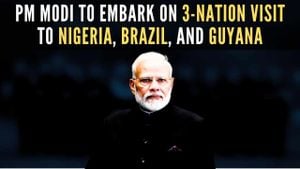KYIV, Ukraine (AP) — Tensions have escalated dramatically following Russia's recent use of the experimental Oreshnik missile against Ukraine, prompting NATO and Kyiv to convene emergency talks. This attack, which struck the central city of Dnipro on November 21, marked not only the launch of new military equipment but also the latest escalation amid nearly 33 months of war.
Russian President Vladimir Putin characterized the missile strike as retaliation for Ukraine's use of U.S. and British long-range missiles, asserting confidently during his televised address, "Western air defense systems would be powerless to stop the new missile." This claim was made just after Ukrainian forces struck targets within Russia using the Army Tactical Missile System (ATACMS) and Storm Shadow missiles, authorized by their Western allies.
Ukrainian parliament sessions were canceled as security measures intensified, highlighting the gravity of the situation. Dnipro, which faced casualties from the missile strike, was described as being targeted by what officials claim is one of the largest Russian assaults on energy infrastructure observed recently. Putin, during meetings with the defense ministry, insisted on continuing tests of the Oreshnik missile under alleged prosecutorial conditions, indicating the Kremlin's serious commitment to optimizing its strike capability.
The Oreshnik missile, claimed to travel at speeds of Mach 11—almost twelve times the speed of sound—was launched from the Kapustin Yar missile testing range and struck its target within 15 minutes, according to Ukrainian intelligence reports. Each missile carries multiple warheads, reinforcing its lethality and urgency for countermeasures. While the Pentagon described the missile as 'experimental,' based on existing technologies like the RS-26 Rubezh ICBM, Western military experts indicate only limited stockpiles of these new missiles exist.
Ukraine's President Volodymyr Zelenskyy has expressed deep concern about the new threat posed by Russian missile capabilities, asserting the need for enhanced air defense systems to keep the civilian population safe. Zelenskyy reiterated, "We must respond firmly and decisively to this latest act of Russian madness." His call for immediate action resonates amid fears of prolonged escalations and disastrous humanitarian impacts.
Hungarian Prime Minister Viktor Orbán echoed existing Kremlin sentiments, warning about the risks posed by supplying advanced weaponry to Ukraine. He suggested the provisioning of NATO weapons implies direct U.S. involvement—a claim reflected in the rhetoric shared by other Kremlin officials. Meanwhile, Czech Foreign Minister Jan Lipavský labeled the missile strike as both escalatory and aimed at instilling fear across Ukraine and Europe.
Following the Dnipro assault, the U.S. confirmed it would send additional military assistance to Ukraine, including defense systems capable of combating this new missile threat. This increase in support aims to bolster Ukraine’s operational capabilities and prevent future attacks. The Biden administration had previously lifted restrictions on Ukraine's ability to strike Russian military targets, paving the way for these recent strikes and elevations in conflict dynamics.
Beyond military capabilities, significant political maneuvers are underway as discussions about peace initiatives are overshadowed by the immediate threat of missile attacks. President Erdogan of Turkey proposed mediation efforts, but these have been rejected outright by the Kremlin.
Poland's Prime Minister Donald Tusk articulated growing concerns, asserting the conflict is entering “a decisive phase” riddled with increasing peril. Security discussions scheduled between Ukraine and NATO allies are poised to explore collaborative efforts to counteract Russian advancements and mitigate the rising threat of ballistic strikes.
The ramifications of deploying hypersonic missiles extend beyond immediate tactical military objectives; they can have long-lasting effects on global security and the stability of the region. Zelenskyy, addressing the international community, has highlighted the urgency for unified global responses to counteract Russian provocation.
Meanwhile, as global leaders watch closely, China's foreign ministry has urged all parties to exercise restraint amid the mounting hostilities stemming from this missile clash. The situation remains fraught with unpredictability, as diplomatic channels are tested against the backdrop of increasingly lethal military engagements.
Moving forward, Ukraine has vowed to adapt its military strategies, including enhancing air defense systems to respond to threats like the Oreshnik missile effectively. Zelenskyy's administration is engaging alongside Western partners to secure advanced technologies capable of mitigating the risk of future escalations.
Officials from both NATO and Ukraine continue to navigate the tense geopolitics resulting from the missile attacks, as the U.S. and European allies reassess their military support frameworks for Ukraine. While the prospect of negotiations looms, the recent missile use serves as a stark reminder of the stakes involved, and how quickly diplomacy can devolve amid heightened military contention.



